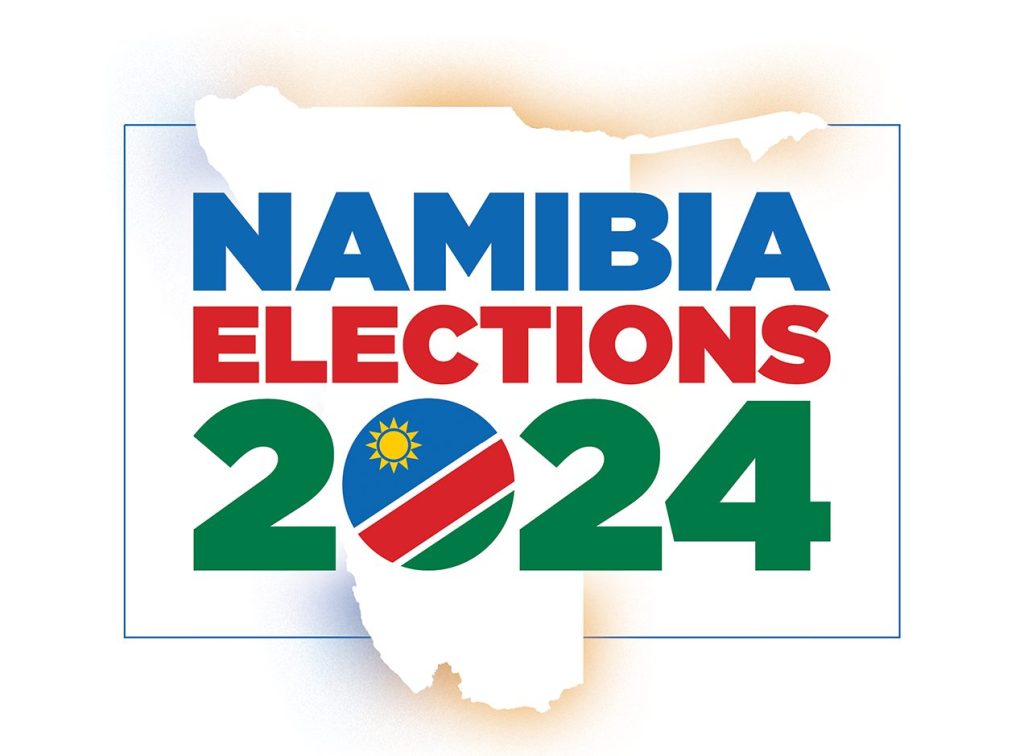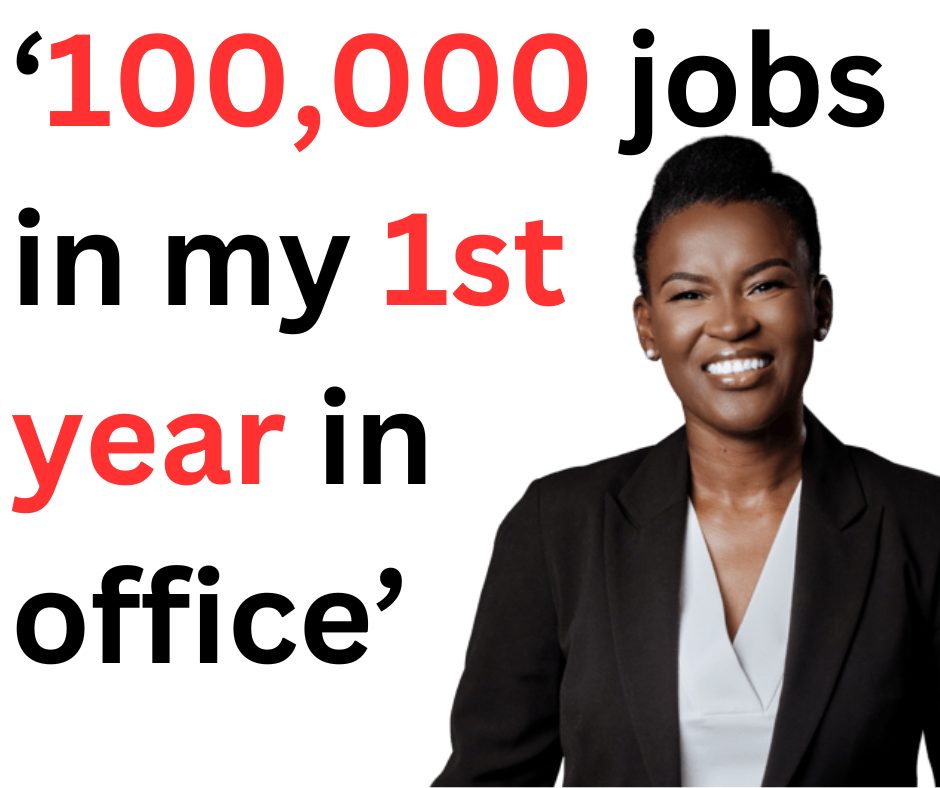IMAGE: Namibia Fact Check / allyangula2024.com
News media continue to provide surface-level reporting of highly questionable claims and statements by politicians looking for votes
This is not a fact check, because fact checkers do not and cannot verify claims and statements about the future.
What this is, is an attempt to assist news reporters, especially those reporting on election campaigns in the run-up to the 27 November 2024 presidential and parliamentary elections, to cover election campaign platforms and promises better.

The promises
Unemployment is a highly emotive political and socio-economic issue in Namibia and is a long-term priority concern for most Namibians, according to successive Afrobarometer surveys over the years.
That said, it is to be expected that politicians looking to attract voters will try and speak seriously about addressing seemingly rampant unemployment (the official unemployment rate is six-years old and thus outdated at this point), and it is possible that some of the promises and claims about addressing unemployment will come across as outlandish and exaggerated. Which is why news reporters can not simply report what electioneering politicians are promising, but need to critically interrogate what politicians are saying.
At the end of April 2024, independent presidential candidate Ally Angula launched her election manifesto (basically a pack of presentations on different topics). Based on the campaign documents, Angula’s presidential campaign presents job creation as her primary goal.
In short, Ally Angula proposes to create 100,000 jobs immediately after taking office, basically in her first year, and 500,000 jobs over the first three years of her presidency.
The reporting on these promises did not sufficiently clarify how she would be achieving this job creation, but reporters were quick to turn to economic commentators and researchers to get their opinions on Angula’s jobs promises, and predictably these commentators labeled her promises as “impractical”, “unrealistic” and even “cheap talk”.
This type of reporting does not give the audience enough insight into what the politician is actually proposing or promising, and leaves the audience with more questions than answers.
Here’s what the reporters should have done:
- Don’t let the politician get away with sloganeering or making outlandish claims on socio-economic issues. Isolate specific claims or promises and press them to explain their plans and proposals in detail.
- Ask them for the evidence or data that should underpin their plans and proposals. They should be open about presenting their evidence to the public.
- Bring in relevant experts in a specific field (economics, housing, health, etc.) to assess and critique whether their plans and proposals are sensible and realistic, based on best available evidence.
- Present a detailed analysis, based on the evidence and expert inputs, of the politician’s plans and proposals to the public.
Applying the guidance
Namibia Fact Check reached out to independent presidential candidate Ally Angula in May 2024 to get her to explain in detail some of the aspects of her job creation promises and proposals.
The specific questions we addressed to her were:
- What evidence do you have that shows that great business ideas are going unfunded in Namibia?
- The Enterprise Namibia document seems to suggest that governments are good at picking the right projects. What evidence do you have that supports this idea?
- The Immediate Jobs document seems to suggest that in your first year in office you’re going to create 100,000 jobs, followed by similar numbers over the subsequent years. However, any job creation schemes of the scale you’re proposing surely have to be preceded by extensive nation-wide needs assessment mapping and data gathering, followed by data analysis for project planning and design, as well as project costing and budget planning and allocation. This would be followed by a period of creating and setting up project funding and resources distribution channels, and the necessary project monitoring mechanisms. These processes could take at least two to three years if significant state capacity and resources are solely devoted to achieving the project implementation you’re proposing. Given all this, how realistic is the timeline you’re proposing?
- Where is the N$12 billion for the Enterprise Namibia Fund and the N$5 billion for the renovate, repair and restore program going to come from?
- What is the cost of the Rural Residents Infrastructure Construction Program and where will the funding come from? Similarly, where will funding for the VTC Mobile Clinics and GRN Vehicle Fleet Rebuild Program come from?
You can read Ally Angula’s detailed responses to these questions here.
Ally Angula’s jobs promises and responses will be analysed in comparison to what promises and commitments other candidates and political parties present in their manifestos, once they are available.
We also put her jobs creation promises to economist Robin Sherbourne, who is the author of the influential ‘Guide to the Namibian Economy’, and in his expert opinion the evidence base that should have underpinned and informed Angula’s promises was lacking and even non-existent.
The aim of providing in-depth reporting on claims and promises of politicians campaigning for votes is to give the audience and voting public as much information as possible to be able to make an informed decision about candidates and their platforms.
For more on how to cover electioneering politicians, see our guide on fact checking politicians and political parties.

